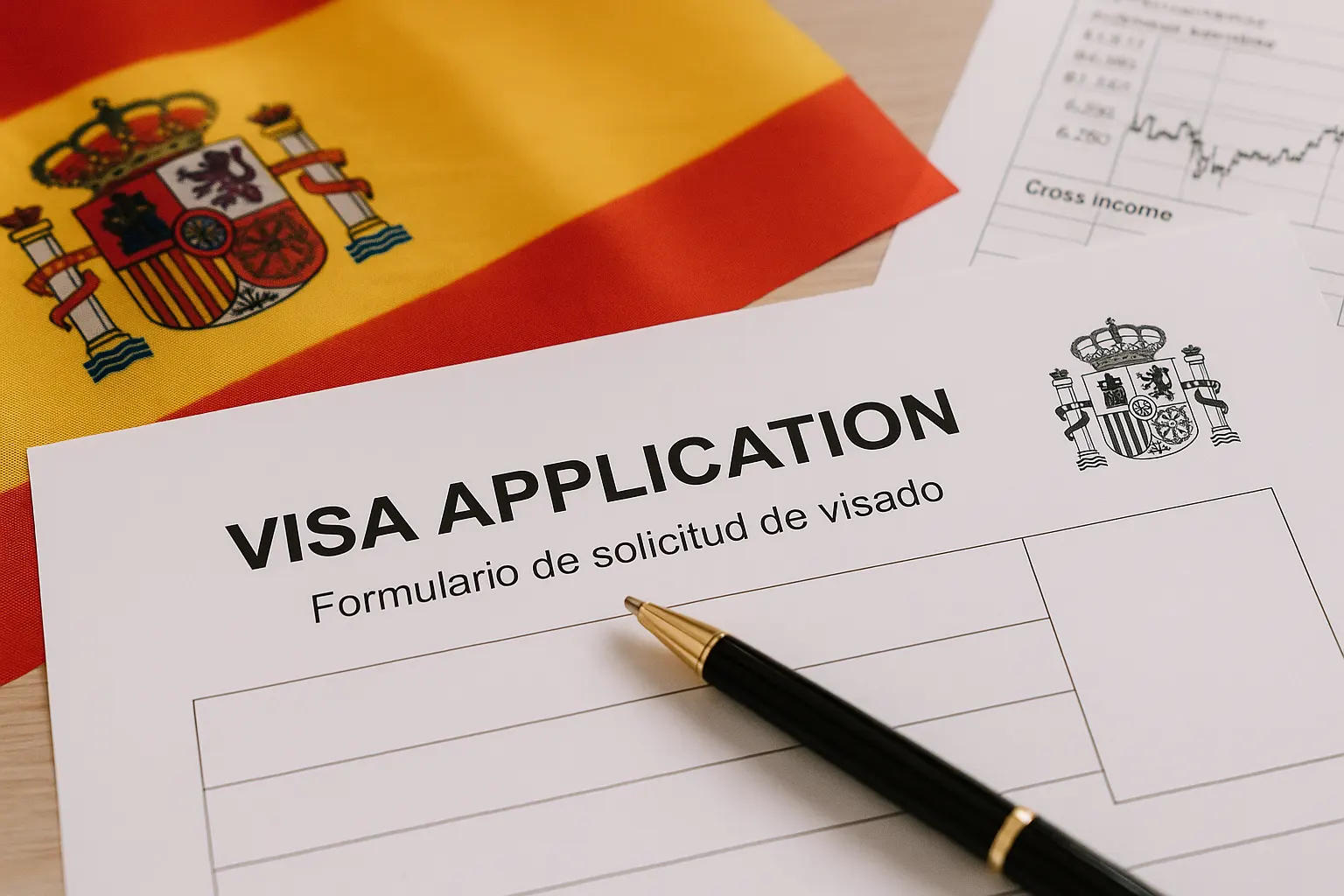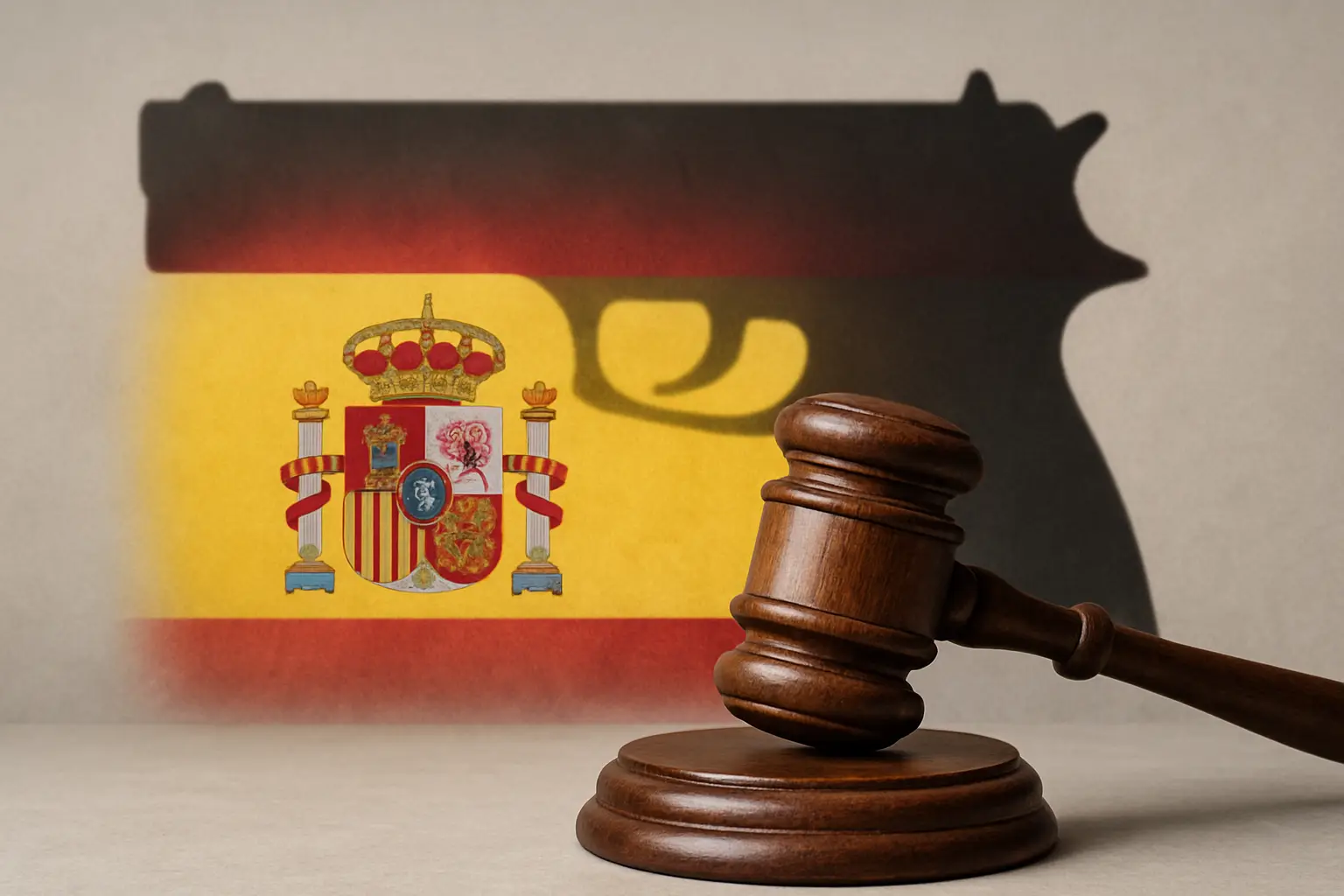The double tax treaty Spain UK is an important legal agreement that stops individuals and businesses from having to pay taxes on the same income in both countries. It explains which country has the right to tax certain types of income, like salaries, pensions, dividends, and capital gains, so you won’t have to worry about being taxed twice.
Here are some key things to know about the double taxation treaty Spain UK:
- It applies to residents of Spain and the UK, making it clear what taxes they need to pay.
- It sets out specific rules for taxing income that crosses borders.
- It offers ways to get relief from double taxation by using credits or exemptions.
Knowing these details is crucial for saving money on taxes and following the rules set by both Spanish and UK tax authorities. Understanding how this treaty works can help you pay less tax and plan your finances better.
For instance, if you’re a freelancer working in both countries, it’s important to check the freelance tax rates in Spain and the UK for 2025 so you can make smart business choices. Additionally, being aware of Spain’s 2025 tax brackets can assist you in managing your finances effectively and getting the most deductions possible.
Understanding Double Taxation and Its Impact
Double taxation occurs when the same income or financial gain is taxed by two different jurisdictions. This situation frequently arises in cross-border contexts, such as when an individual or company earns income in one country but resides in another. For example:
- A UK resident working remotely for a Spanish company may be liable to pay taxes both in the UK and Spain on the same employment income.
- A Spanish resident receiving dividends from a UK-based corporation might face taxation on these dividends by both countries.
Taxpayers navigating obligations under the double taxation agreement Spain UK often encounter challenges that complicate compliance and increase their tax burdens. These challenges include:
- Determining which country has primary taxing rights over specific income types.
- Identifying applicable exemptions or credits to offset tax paid abroad.
- Managing administrative requirements imposed by both tax authorities.
However, there are potential solutions to mitigate these issues. For instance, the Spain Digital Nomad Visa offers certain tax benefits for UK citizens, including Beckham Law perks and double taxation protection.
In addition, understanding different tax systems can also help in planning better. For example, the concept of a territorial tax system, which is employed by some countries, may provide insights into how certain jurisdictions handle international earnings.
Failure to understand these obligations can lead to paying double taxes, reducing net income unnecessarily. The provisions of the double taxation agreement Spain UK article offer structured rules to mitigate this issue. Recognizing how these rules apply is essential for residents with foreign income to optimize tax efficiency and avoid overlapping tax liabilities.
Understanding one’s tax obligations under this treaty promotes clarity and financial planning precision, preventing costly errors related to international taxation.
Key Features of the Spain-UK Double Tax Treaty
The Spain-UK Double Tax Treaty, signed to prevent dual taxation and fiscal evasion, came into effect on 31 December 2015. It applies to taxes imposed by both countries: Spain and the United Kingdom. The treaty covers a wide range of taxes including:
- Income tax (covering personal and corporate income)
- Capital gains tax
- Corporation tax
These provisions aim to clarify taxing rights and reduce uncertainty for taxpayers earning income in either or both jurisdictions.
Several key articles within the treaty outline specific rules for different types of income:
- Article 6: Income from Immovable Property
- This article establishes that rental income from real estate located in one country may be taxed by that country, regardless of the taxpayer’s residence. This is particularly relevant for individuals or companies receiving rental income under the tax treaty Spain UK rental income provisions.
- Article 10: Dividends
- Specifies withholding tax rates on dividends paid between residents of the contracting states, often reducing standard domestic rates to avoid excessive taxation.
- Article 12: Royalties
- Regulates taxation of royalties to ensure they are not taxed excessively in both countries.
- Article 15: Employment Income
- Defines where employment income should be taxed, primarily granting taxing rights to the country where services are performed.
Other articles address pensions, capital gains, business profits, and methods to eliminate double taxation such as credits or exemptions. Together, these provisions form a comprehensive framework that protects taxpayers from being taxed twice on the same income while respecting each country’s sovereign right to tax certain incomes.
For example, under this treaty, individuals working remotely under the Spain Digital Nomad Visa can benefit from reduced tax liabilities. Moreover, high-earning expats may find substantial savings through the Beckham Law, which offers significant tax advantages. For those looking to estimate their tax liabilities in Spain, a Spain tax calculator can provide valuable assistance.
Determining Tax Residency under the Treaty
Determining residency is crucial when applying the Spain-UK Double Tax Treaty, as it affects where an individual or company pays tax and which country has taxing rights. The treaty provides clear criteria to establish tax residence for both individuals and entities.
Criteria for Individual Residency
An individual is generally considered a resident of the country where they:
- Have a permanent home available.
- Have their center of vital interests (personal and economic relations).
- Habitually reside (usually more than 183 days in a calendar year).
- Are a national, if residency cannot be determined by other means.
If these tests do not conclusively determine residency, additional factors such as nationality are taken into account.
Criteria for Corporate Residency
A company is treated as resident in the country where it is:
- Incorporated or legally constituted.
- Managed and controlled (place of effective management).
Tiebreaker Rules for Dual Residency
Dual residency can arise when an individual or company meets residency conditions in both Spain and the UK. The treaty’s tiebreaker rules resolve this situation by sequentially applying:
- Permanent home location.
- Center of vital interests.
- Habitual abode.
- Nationality (for individuals).
- Mutual agreement procedure between the two countries’ competent authorities.
These rules prevent double taxation caused by conflicting residency claims and ensure taxpayers are clearly assigned to one jurisdiction for tax purposes under the treaty.
Understanding how to determine residence accurately avoids complications such as duplicate tax filings or unexpected liabilities. It forms the foundation for applying subsequent treaty provisions related to income taxation and relief mechanisms.
Types of Income Covered by the Treaty and Their Tax Treatment
The Spain-UK Double Tax Treaty addresses various types of income to prevent double taxation and clarify taxing rights. Key categories include:
1. Employment Income
Employment income is generally taxable in the country where the work is physically performed. For cross-border workers commuting between Spain and the UK, this means income earned from duties carried out in one country is taxed there, even if paid by an employer based in the other country. Special rules may apply to short-term assignments or temporary work arrangements.
2. Pensions
The treaty distinguishes between public and private pensions:
- Public pensions (government retirement benefits) are usually taxable only in the country paying the pension.
- Private pensions (occupational or personal pension schemes) may be taxed in the country of residence of the recipient, with provisions to avoid double taxation through relief mechanisms.
Other types of income covered include:
- Dividends: Taxed primarily where the company distributing dividends is resident, with specified withholding tax rates to reduce excessive taxation.
- Capital Gains: Gains from disposal of property are generally taxed in the country where the property is located. Gains from shares may be taxed only in the resident country unless related to a permanent establishment.
- Property Income: Rental income from immovable property is taxed where the property is situated.
- Royalties: Usually taxed in the country of residence, but withholding taxes may apply where royalties arise.
Clear designation of taxing rights for these income types protects taxpayers from paying tax twice on identical earnings or gains, streamlining cross-border financial activities.
Relief Mechanisms to Avoid Double Taxation
The Spain-UK Double Tax Treaty incorporates specific mechanisms designed to relieve taxpayers from the burden of paying tax twice on the same income. These mechanisms enable individuals and businesses to claim relief through credits or exemptions, effectively reducing their overall tax liability.
Key relief options include:
- Tax Credits: When income is taxed in one country, the other country allows a credit against its own tax on that income. For example, if a UK resident earns income in Spain and pays Spanish tax on it, the UK will generally grant a credit equal to the Spanish tax paid. This credit reduces the UK tax payable on that same income, ensuring no double taxation occurs.
- Exemptions: Certain types of income may be exempt from tax in one jurisdiction under the treaty’s provisions. For instance, dividends, interest, or royalties might be taxed only in the country of residence or source depending on specific treaty articles. Exemptions prevent duplication by excluding income from taxation in one country altogether.
- Claim Procedures: Taxpayers must actively claim these reliefs when filing their tax returns. Accurate documentation and compliance with reporting requirements are critical to successfully avoid paying double taxes.
Understanding these relief methods empowers taxpayers to navigate cross-border taxation efficiently. Identifying which mechanism applies depends on the nature of income and where it is earned or received under the treaty’s framework.
Corporate Tax Implications for Businesses Operating Cross-Border
Understanding business companies corporate tax permanent establishment liabilities is essential when navigating the Spain-UK double tax treaty. The concept of a permanent establishment (PE) plays a pivotal role in determining where and how corporate taxes are applied.
What Constitutes a Permanent Establishment?
A permanent establishment refers to a fixed place of business through which the business of an enterprise is wholly or partly carried on. Examples include:
- A branch office
- A factory or workshop
- A place of management
- A construction site lasting more than a specified period (usually 12 months)
The presence of a PE in one country generally subjects the enterprise to corporate tax obligations on profits attributable to that PE in that jurisdiction.
Significance under the Spain-UK Double Tax Treaty
The treaty provides detailed rules defining when a business operating cross-border has a taxable presence. Key implications:
- Tax liabilities arise only if there is a PE in the other country.
- Profits are taxed where economic activities generating those profits occur.
- If no PE exists, income from business operations is usually exempt from tax in the source country but taxed in the resident country.
Impact on Business Operations
Businesses must evaluate their physical and operational footprint carefully. Establishing:
- Offices,
- Agents with authority to conclude contracts,
- Or other fixed locations,
may trigger tax liabilities in Spain or the UK under this treaty.
Understanding these definitions helps businesses plan structures that avoid unintended corporate tax burdens while complying with international tax laws established between Spain and the UK.
Compliance Obligations Under the Spain-UK Double Tax Treaty
Accurate compliance with reporting requirements is essential for taxpayers subject to the Spain-UK Double Tax Treaty. Both HMRC in the UK and Spanish tax authorities require detailed disclosure of foreign income to correctly apply treaty provisions and prevent double taxation.
Key Compliance Considerations
1. Declaration of Foreign Income
Individuals and companies must report all relevant foreign income, including employment earnings, dividends, interest, pensions, and capital gains. Failure to disclose such income can lead to penalties or loss of treaty benefits.
2. Use of Specific Reporting Documents
The UK government provides guidance on compliance reporting documents at gov.uk, including forms like the Self Assessment tax return where foreign income must be declared explicitly. Spanish tax residents must file annual tax returns declaring worldwide income using the Modelo 100 form.
3. Timely Submission
Meeting deadlines for submission of tax returns and related documents is critical. Late or inaccurate filings may trigger audits or additional scrutiny from tax authorities on cross-border income.
4. Record Keeping
Maintaining comprehensive records supporting declared income and claimed treaty reliefs is necessary. Documents such as payslips, contracts, dividend statements, pension details, and previous tax assessments support accurate reporting.
“Proper compliance enables taxpayers to benefit fully from treaty provisions designed to avoid double taxation and reduce overall tax liabilities.”
Adhering to these obligations minimizes risks associated with non-compliance and facilitates smoother resolution in case of inquiries by either HMRC or Spanish authorities. Understanding the procedural aspects of cross-border tax reporting ensures that individuals and businesses leverage treaty advantages effectively while meeting statutory requirements.
Practical Benefits for Individuals Living or Working Between Spain & UK
Understanding the Spain-UK Double Tax Treaty offers significant advantages for individuals and taxpayers who have ties to both countries. The treaty clarifies tax liabilities, enabling residents and cross-border workers to optimize their financial situation and gain savings on multiple fronts.
Key benefits include:
- Avoidance of double taxation: Individuals earning employment income or receiving pensions in one country but residing in the other can prevent being taxed twice on the same income.
- Maximized tax credits: The treaty allows taxpayers to claim credits for taxes paid abroad, reducing overall tax payable.
- Clear residency status: Determining where one is considered resident for tax purposes helps align obligations with actual economic ties.
- Targeted pension taxation: Public pensions are generally taxed in the country paying the pension, while private pensions may be treated differently to avoid excessive taxation.
- Simplified compliance: Knowing treaty provisions streamlines reporting and reduces risks of penalties related to underreporting foreign income.
Individuals living between Spain and the UK, including expatriates and digital nomads, benefit by accurately allocating their employment income and pensions according to treaty rules. This ensures maximum retention of earnings without unnecessary tax burdens. Businesses employing such individuals also gain from clear guidance on withholding taxes and social security contributions.
“Proper application of the treaty provisions translates directly into tangible savings for residents navigating complex cross-border tax scenarios.”
Post-Brexit Changes Affecting Tax Treaties Between Spain & UK
The departure of the United Kingdom from the European Union has introduced notable adjustments to the application and interpretation of the Spain-UK Double Tax Treaty. Brexit affects how certain provisions under the treaty operate, particularly in relation to cross-border taxation and the interaction with EU law.
Key implications include:
1. Loss of EU Directive Benefits
The UK is no longer bound by EU directives that previously influenced tax treaty interpretations, such as the Parent-Subsidiary Directive or Interest and Royalties Directive. This change means some tax reliefs formerly automatic under EU law now require reliance solely on bilateral treaty provisions.
2. Impact on Permanent Establishment (PE) Rules
Brexit modifies how PE status is determined under the treaty, especially for businesses operating between Spain and the UK. The application of PE rules must consider post-Brexit criteria without default reference to EU regulations.
3. Objectives and Subjective (Obj) Rules Reassessment
Certain anti-abuse measures and objective criteria within the double tax treaty have been revisited to ensure they remain effective outside an EU framework. This includes careful scrutiny of residency claims and eligibility for treaty benefits.
4. Coordination with Ireland-Spain DTA
Given Ireland’s continued EU membership, taxpayers dealing with both Spain and the UK must understand distinctions between tax treaties Spain has with each country. The double taxation agreement UK Spain after Brexit requires navigation alongside Ireland Spain DTA provisions when structuring cross-border activities involving all three jurisdictions.
5. Administrative Procedures and Compliance
Cross-border taxpayers face changes in documentation requirements, certification processes, and communication protocols with Spanish and UK tax authorities due to Brexit-related regulatory divergence.
These Brexit-driven changes necessitate close attention to updates in bilateral treaties and domestic tax legislation to optimize tax outcomes under the double tax treaty Spain UK framework. Awareness of evolving rules helps mitigate risks of double taxation or loss of treaty benefits in a post-Brexit environment.
Conclusion
Understanding the double tax treaty Spain UK is essential for residents, businesses, and taxpayers aiming to maximize savings and comply with complex tax obligations. Navigating the key rules can be challenging due to varying income types, residency criteria, and relief mechanisms.
“Each taxpayer’s situation is unique; professional advice tailored to individual circumstances unlocks the full benefits of the treaty.”
Consider these points when planning cross-border tax matters:
- Engage qualified tax advisors familiar with Spain-UK treaties.
- Review your residency status carefully to determine applicable tax rules.
- Assess all income streams against treaty provisions for optimal tax treatment.
- Use relief mechanisms such as credits or exemptions to avoid double taxation.
Proactive consultation reduces risks of unexpected tax liabilities and ensures that you fully leverage opportunities within the treaty framework. The complexity of international tax law underscores the value of expert guidance in maximizing savings under this important bilateral agreement.














